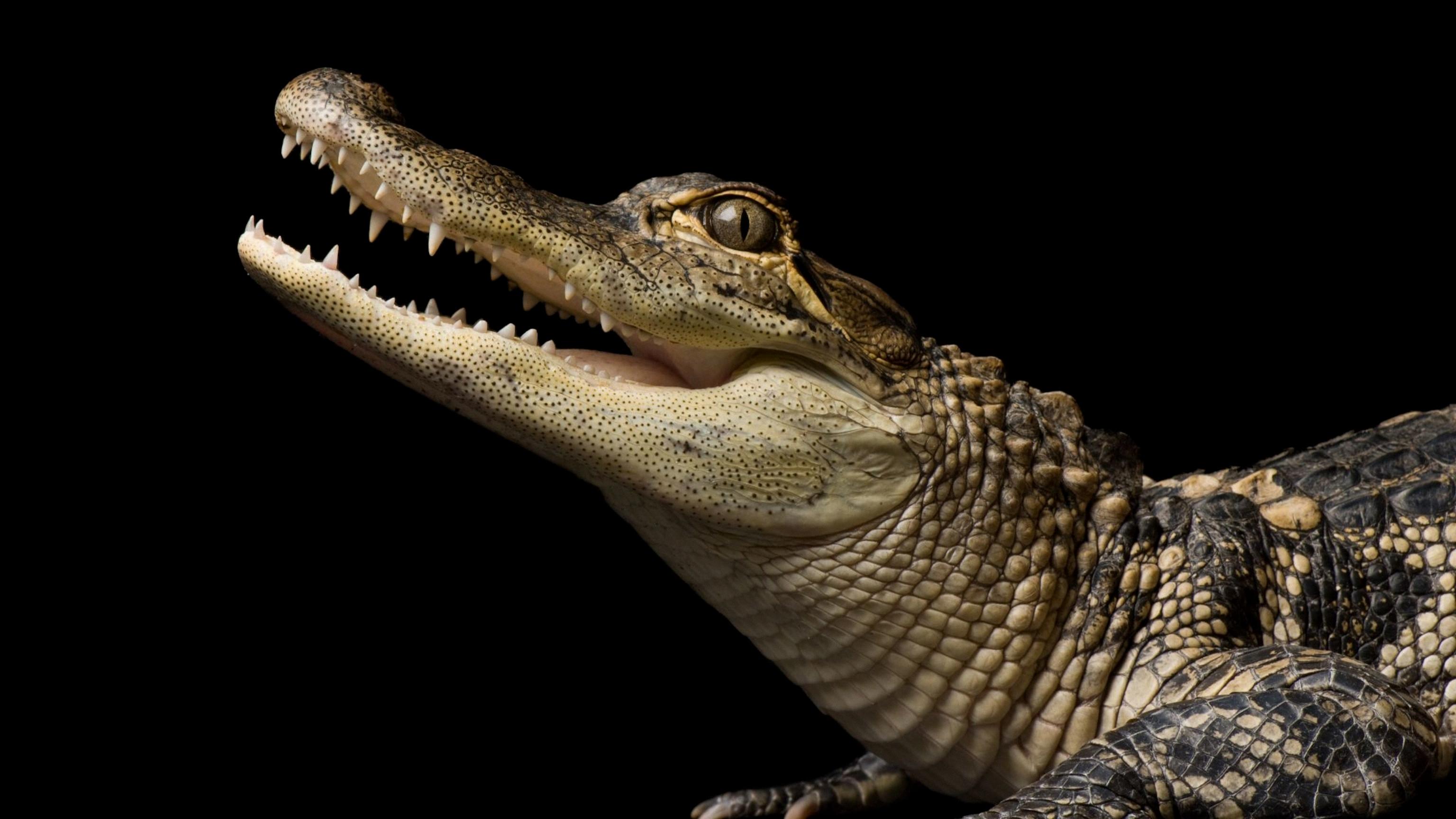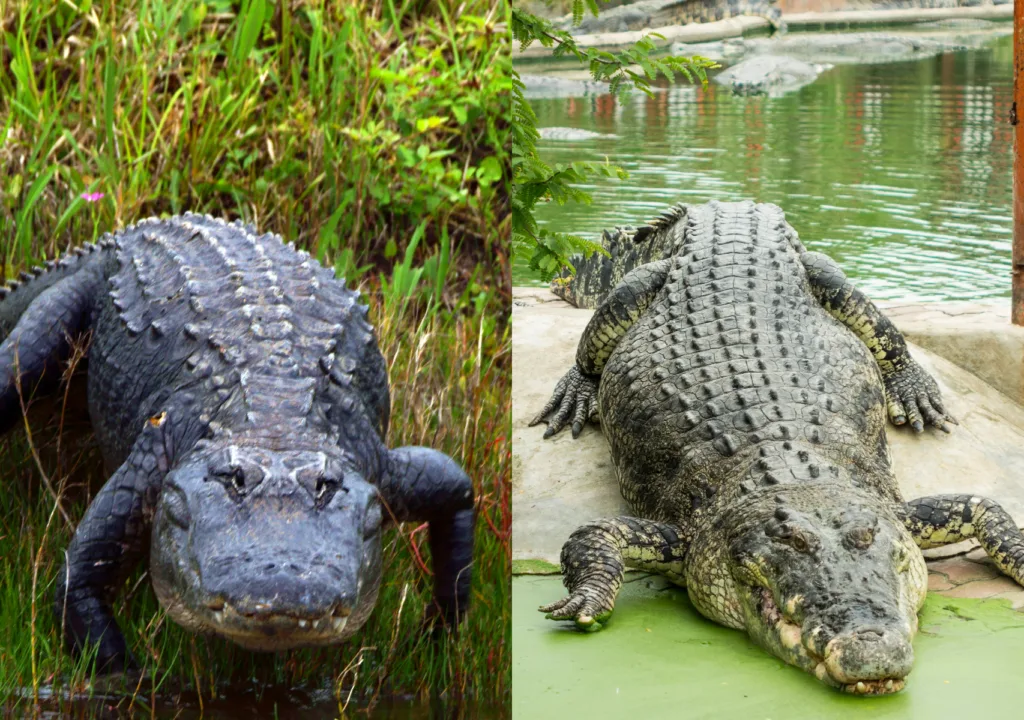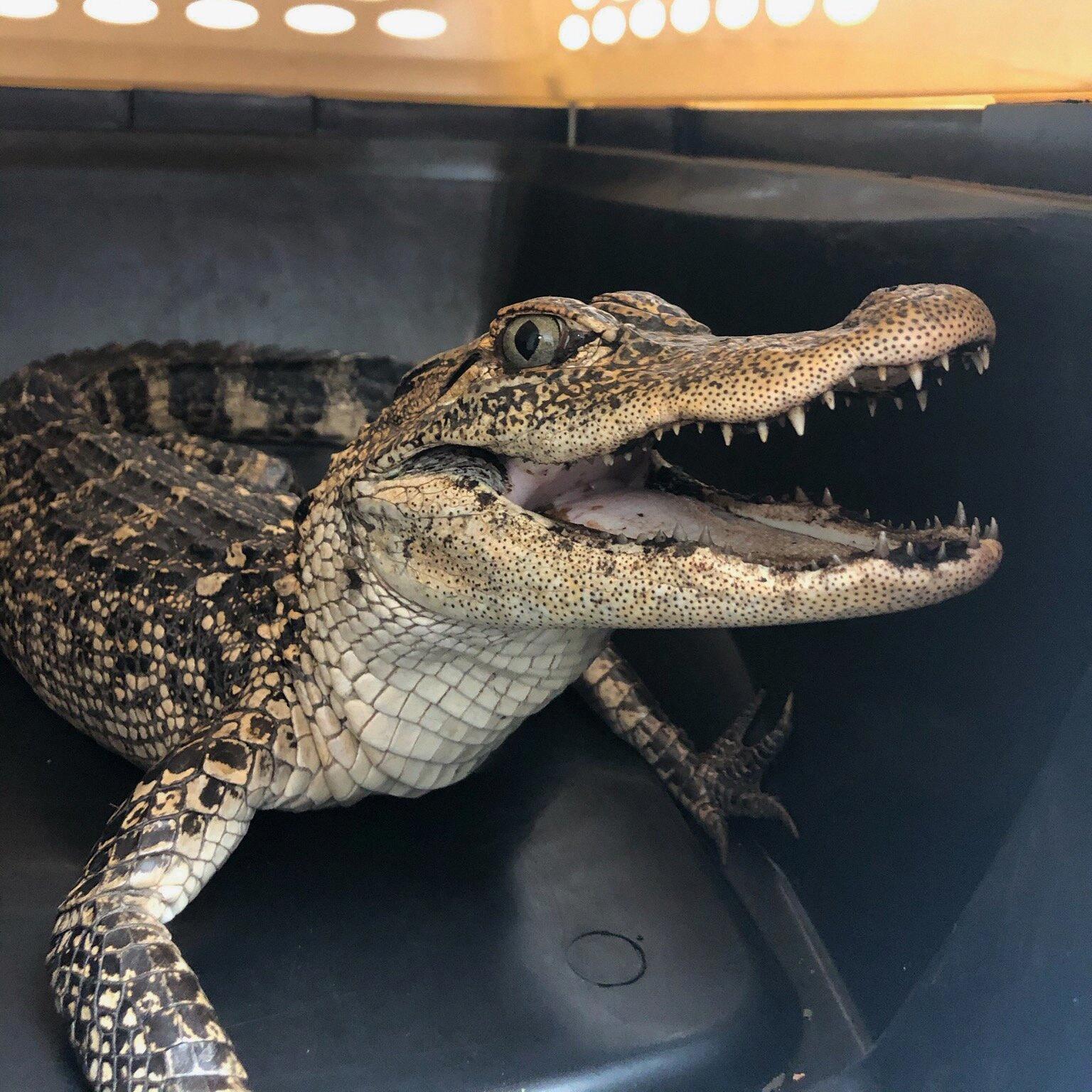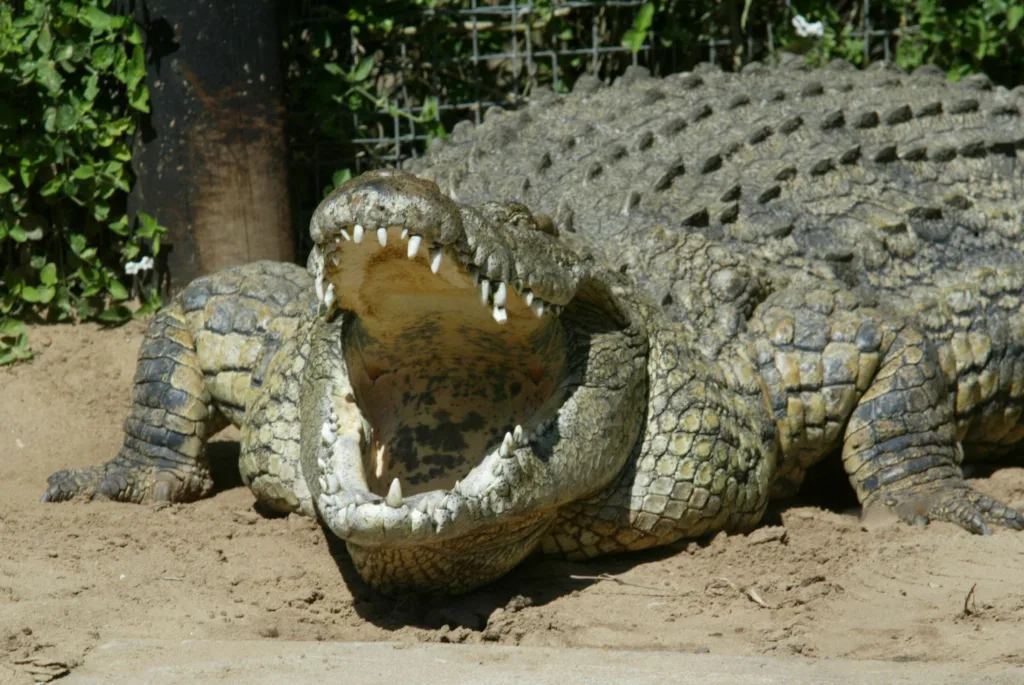Alligators are fascinating creatures that have captured the attention of people all around the world. These large reptiles are kown for their powerful jaws, scaly skin, and ability to move seamlessly between water and land. But one question that often comes up is whether alligators can survive in saltwater. In this blog post, we’ll explore the answer to that question and learn more about these incredible animals.
First and foremost, it’s important to note that alligators are primarily freshwater creatures. They are most commonly found in swamps, rivers, ponds, and lakes throughout the southeastern United States. While they are able to tolerate some saltwater exposure, they are not adapted to living in a fully marine environment. This is because alligators lack salt glands, which are specialized organs that allow some animals to remove excess salt from their bodies.
So while alligators may occasionally venture into brackish or saltwater environments, they cannot survive in these habitats full-time. Instead, they must return to freshwater to maintain their salt balance and obtain the nutrients they need to survive. This is why you are unlikely to find alligators in the ocean, although there have been rare sightings of them basking on beaches or swimming near shorelines.
It’s worth noting that there are some species of crocodiles that are adapted to living in saltwater environments. These animals have salt glands that allow them to excrete excess salt, and they are able to thrive in marine ecosystems. However, these crocodiles are not found in the same regions as alligators and have different physical characteristics that set them apart.
Despite their inability to live in saltwater, alligators are still incredibly important members of their ecosystems. They play a crucial role in controlling populations of other animals, such as fish and turtles, and they serve as indicators of wetland health. In addition, alligators have long been revered by humans for their strength and resilience, and they continue to be a source of fascination and wonder for people all around the world.
While alligators may be able to tolerate some exposure to saltwater, they are not adapted to living in these environments full-time. These fascinating creatures are primarily freshwater animals, and they play a vital role in maintaining the health of their ecosystems. So the next time you come across an alligator, take a moment to appreciate the incredible adaptations and behaviors that make these creatures so unique.
The Reasons Why Alligators Cannot Go in Salt Water
Alligators cannot survive full-time in salt water because they lack salt glands, which are organs that allow animals to excrete excess salt. Without salt glands, alligators cannot regulate their salt levels in salt water, which can lead to dehydration and death. To compensate for this, alligators move back and frth between marine and freshwater ecosystems to rebalance their salt levels. Additionally, alligators feed on freshwater prey, so they must return to freshwater habitats to hunt for their food. Therefore, while alligators can tolerate some exposure to salt water, they cannot live in it full-time due to their lack of salt glands and dependence on freshwater food sources.

Source: nationalgeographic.com
Do Crocodiles and Alligators Live in Saltwater?
Crocodiles and alligators are both semi-aquatic reptiles and can be found in both freshwater and saltwater environments. However, there are some differences in their preferred habitats. Alligators tend to prefer freshwater habitats, such as swamps, marshes, and lakes, whle crocodiles are more commonly found in saltwater or brackish water habitats, such as estuaries, mangrove swamps, and coastal areas. This is because crocodiles have salt glands located in their mouths, which allows them to excrete excess salt from their bodies and survive in saltwater environments. Alligators, on the other hand, do not have these glands and are better adapted to freshwater environments. However, it is important to note that both crocodiles and alligators are versatile and can adapt to different environments as needed.
The Presence of Alligators in the Oceans of Florida
Alligators are typically not found in the ocean in Florida. These reptiles are usually found in freshwater habitats such as swamps, rivers, ponds, and lakes. However, there have been rare instances where alligators have been spotted near the coast or even on the beach. It is important to note that thse occurrences are not common, and alligators are not adapted to living in saltwater environments. It is more likely that these alligators wandered into these areas from nearby freshwater habitats. Therefore, while it is possible to spot an alligator near the ocean in Florida, it is not where they are typically found.
The Presence of Saltwater Crocodiles in Florida
No, there are no saltwater crocodiles (Crocodylus porosus) in Florida. However, there are American crocodiles (Crocodylus acutus) that live in coastal areas throughout the Caribbean, and occur at the northern end of their range in south Florida. American crocodiles are a separate species from saltwater crocodiles, and have adapted to living in brackish or saltwater areas, such as ponds, coves, and creeks in mangrove swamps.
Can Crocodiles and Alligators Mate?
Crocodiles and alligators fall under the same order, “Crocodilia,” but they are different species and are not closely related enough to interbreed. Both alligators and crocodiles have unique physical and behavioral characteristics that distinguish them from one another. Furthermore, their mating behaviors and reproductive systems differ significantly, making it impossible for them to mate and produce viable offspring. Therefore, while they share many similarities, crocodiles and alligators cannot mate with each other.

Where Are Alligators Found in the United States?
American alligators can be found in several states in the United States, including Florida, southern Texas, Louisiana, and parts of North and South Carolina, Georgia, and Alabama. These states are known to have suitable habitats for alligators, which include wetlands, marshes, swamps, and rivers. While the alligator’s range has historically been limited to these states, there have been recent reports of alligators being spotted in more northern areas, suggesting that their range may be slowly expanding. However, it’s important to note that alligators are primarily found in the southeastern part of the United States.
Can Gators Be Found in the Ocean?
Yes, alligators can be in the ocean and they are able to swim in and tolerate saltwater. However, it’s important to note that saltwater is not their preferred habitat. Despite this, it is possible to come across alligators in coastal areas and estuaries, especially during times of flooding or high water levels in rivers. However, beachgoers need not be overly concerned about encountering alligators on the shore as they typically do not venture too far out into the ocean.
Can Crocodiles Survive in the Ocean?
Crocodiles are known to thrive in a variety of aquatic habitats, including freshwater rivers, lakes, and swamps. However, only two species of crocodiles, the American crocodile and the Indo-Pacific crocodile, are known to be comfortable in marine settings. These crocodiles are sometimes referred to as “saltwater crocodiles” due to their preference for oceanic environments. These crocodiles have adapted to the high salinity levels found in the ocean and can often be found near coastal areas or in estuaries where salt and freshwater mix. While other crocodile species may occasionally venture into the ocean, they are not as well adapted to marine environments as the American and Indo-Pacific crocodiles. So, in short, yes, crocodiles can go in the ocean, but only certain species are comfortable and adapted to this type of environment.
Do Crocodiles Live in Salt Water?
Yes, crocodiles are knon to inhabit both freshwater and saltwater environments. In fact, there are several species of crocodiles that are found in saltwater habitats, such as the saltwater crocodile (Crocodylus porosus) which is the largest living reptile and is found in the brackish and saltwater habitats of Southeast Asia and Northern Australia. Crocodiles are well adapted to these environments and have specialized salt glands in their tongues that allow them to excrete excess salt from their bodies, which is necessary to survive in saltwater habitats. However, while crocodiles can tolerate saltwater environments, they still primarily inhabit freshwater habitats such as rivers, lakes, and swamps.

Source: nytimes.com
Areas of Florida Where Alligators Are Not Found
While alligators are a common sight in many parts of Florida, there are still several areas within the state whre you can enjoy the outdoors without having to worry about encountering these reptiles. One of the best options for those looking to avoid alligators is to explore the many freshwater spring-fed rivers that run through Central Florida. Some of the most popular of these include Ichetucknee Springs, Madison Blue Spring, Withlacoochee, and Big Bend Saltwater Paddling Trail. These areas are not only alligator-free, but they also offer picturesque views, clear water perfect for swimming and snorkeling, and a variety of outdoor activities like kayaking, tubing, and fishing. So if you’re looking to experience the natural beauty of Florida without coming face to face with any alligators, be sure to check out these wonderful spring-fed rivers.
Swimming in Florida with Alligators
While it is posible to swim in Florida where alligators may reside, it is not recommended to do so. Alligators are wild animals and can be dangerous if provoked or feel threatened. It is important to swim only in designated swimming areas where there are no alligators present. Additionally, it is advised to keep your pets away from the water’s edge, as alligators may see them as prey. Feeding alligators is also prohibited, as it can cause them to associate humans with food and become more aggressive. It is important to maintain a safe distance from alligators and leave them alone. Remember, alligators are an important part of Florida’s ecosystem and should be respected from a safe distance.
Exploring the Reasons Why Alligators Enter the Ocean
Alligators are known to venture into the ocean because they are opportunistic feeders and can adapt to different environments, including brackish and saltwater. While they primarily live in freshwater habitats, alligators can tolerate saltwater for short periods of time and have been known to swim in estuaries and coastal areas in search of food. In these areas, they may prey on crabs, fish, and even sea turtles. However, it’s important to note that alligators are not adapted for life in the ocean and will typically return to freshwater habitats where they are more suited to survive.
The Presence of Nile Crocodiles in Florida
Yes, there have been sightings of Nile crocodiles in Florida, particularly in the Everglades region. Nile crocodiles are not native to Florida, but they have been introduced as a result of the exotic pet trade and escaped or released individuals. They are considered an invasive species and pose a threat to the native wildlife and human safety. Nile crocodiles are larger and more aggressive than the American crocodile, which is the native crocodilian species in Florida. Therefore, it’s essential to monitor and control the population of Nile crocodiles to prevent any potential ecological and safety issues they may cause.

Do Crocodiles Exist in Mexico?
Yes, Mexico is home to the American crocodile (Crocodylus acutus), which is found in several regions of the country. These crocodiles can be found in coastal areas and bodies of water such as lagoons, rivers, and estuaries, particularly in the states of Guerrero, Oaxaca, Campeche, Quintana Roo, and Chiapas. The Mexican government has implemented conservation efforts to protect these crocodiles, as they are considered a threatened species due to habitat loss and hunting for their skin.
The Presence of Crocodiles in Texas
No, crocodiles do not live in Texas. The climate in Texas is not suitable for crocodiles as they prefer warmer temperatures. The nearest crocodile species to Texas is the American crocodile, which can be found in far south Florida. However, even this species is almost extinct due to habitat loss and human interference. Therefore, it is unlikely that crocodiles will be found in Texas anytime soon.
Conclusion
In conclusion, alligators are fascinating creatures with a unique ability to balance their salt levels by moving btween freshwater and marine ecosystems. They are typically found in freshwater habitats such as swamps, rivers, ponds, and lakes, and are rarely seen in the ocean. Unlike crocodiles, alligators do not possess a salt gland, which limits their ability to survive in saltwater environments. Despite their fearsome reputation, alligators are an important part of their ecosystems and play a vital role in maintaining the balance of nature. With their powerful jaws and incredible strength, these creatures are truly remarkable and a testament to the resilience of nature.
